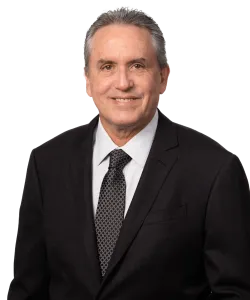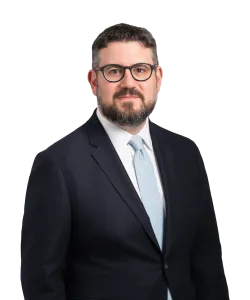It’s Ultra-Complicated: Fifth Circuit and Delaware Bankruptcy Court Decisions Widen Rifts on Make-Whole Premiums and Postpetition Interest
Recent decisions by the Fifth Circuit Court of Appeals and the Bankruptcy Court for the District of Delaware signal further disagreement over the treatment of “make-whole” premium payments under the Bankruptcy Code.
In October 2022, the Fifth Circuit held that make-whole premiums are generally disallowed under the Bankruptcy Code as unmatured interest, but required Ultra Petroleum Corp. and its affiliates to pay the premium under the solvent debtor exception. The court also held that a solvent debtor must pay unimpaired creditors post-petition interest at the contractual rate as opposed to the federal judgment rate. In re Ultra Petroleum Corp., 51 F.4th 138 (5th Cir. 2022).
The Ultra decision aligns with the Ninth Circuit’s September 2022 holding in In re PG&E Corp., 46 F.4th 1047 (9th Cir. 2022) that the solvent debtor exception survived the enactment of the Bankruptcy Code, and provides further support that solvent debtors must honor unimpaired unsecured creditors’ contracted-for rights. Conversely, the Ultra decision conflicts with decisions by the Third Circuit upholding make-whole premiums[1] and by the Second Circuit disallowing make-wholes when the specific language of the indenture did not require them.[2]
On November 9, 2022, the Delaware Bankruptcy Court further widened the rift on make-whole premiums and post-petition interest during a hearing in The Hertz Corporation’s Chapter 11 cases by disallowing a make-whole premium as the economic equivalent of unmatured interest and denying reconsideration of its prior application of the federal judgment rate to post-petition interest. In re The Hertz Corp., Case No. 20-11247 (MFW) (Bankr. D. Del. Nov. 9, 2022).
The Ultra and Hertz decisions mean trustees and noteholders will face more uncertainty about the value and enforceability of make-whole claims against distressed and bankrupt issuers (even with modifications made in the aftermath of Momentive) but will also have more leverage against debtors seeking to classify noteholders as unimpaired to avoid confirmation battles over Bankruptcy Code § 1129(b). All of this suggests indenture trustees and agents should continue to be active participants with their important role in litigation over make-whole claims and proper classification and treatment of holder claims.
Background
In 2016, Ultra, a group of natural gas exploration and production companies, filed for chapter 11 in the Southern District of Texas after a drop in natural gas prices rendered them insolvent. However, during the cases gas prices rebounded and Ultra became “massively solvent.” Ultra proposed a plan of reorganization that would pay the unsecured noteholders under a Master Note Purchase Agreement (MNPA) and unsecured lenders (together with the noteholders, the Creditors) under a revolving credit facility (RCF) all of their outstanding principal and accrued pre-petition interest at the contractual rates, plus post-petition interest at the Federal Judgment Rate, in full and in cash. The Federal Judgment Rate, defined in 28 USC § 1961(a), was about 54 basis points on the date Ultra filed for bankruptcy. Ultra classified these Creditors as unimpaired and deemed to have accepted the plan without voting on it.
The Creditors objected and claimed that, pursuant to a make-whole provision in the MNPA, upon an event of default, the noteholders were entitled to a lump-sum payment of the present value of all future unmatured interest payments on their notes, approximately $201 million (the Make-Whole Payment). In addition, under both the MNPA and the RCF, an event of default rendered all outstanding principal immediately due and payable. The Creditors argued that interest on the accelerated principal and on the Make-Whole Payment should be calculated at the contractual default rates, which for both the MNPA and the RCF were 2% over the greater of two benchmark rates. The Make-Whole Payment and contractual default rate interest would entitle the Creditors to an additional $387 million. The Creditors therefore argued the plan rendered them impaired. Ultra, meanwhile, contended that the Make-Whole Payment was either an unenforceable penalty under governing New York law or “unmatured interest” disallowed by Code section 502(b)(2). Ultra also argued that the Federal Judgment Rate of post-petition interest, rather than the contractual default rate, was appropriate.
On an earlier direct appeal regarding impairment, the Fifth Circuit reversed the Bankruptcy Court’s ruling that the Creditors were impaired unless they were paid the full amount “permitted under applicable non-bankruptcy law.” The Fifth Circuit instead found that a plan does not impair creditors when it implements disallowances provided for by the Bankruptcy Code. The Fifth Circuit remanded for the Bankruptcy Court to decide in the first instance whether the Make-Whole Payment and the contractual default rate were allowable under the Code, and therefore must be paid under the plan. The Bankruptcy Court ruled that (i) the Make-Whole Payment was enforceable under New York law and was not forbidden as unmatured interest nor its “economic equivalent,” and (ii) the “solvent-debtor exception” to the prohibition of unmatured interest under the Bankruptcy Code applied, and therefore the Creditors were entitled to the contractual default rate. Ultra appealed.
Decision
The crux of the case rested on the solvent-debtor exception, a longstanding principle of bankruptcy law that requires a bankruptcy court to enforce creditors’ contracted-for rights when the debtor is solvent and able to pay creditors in full. The Fifth Circuit considered three questions: (1) whether the Bankruptcy Code precludes claims pursuant to make-whole provisions; (2) if so, whether the solvent-debtor exception applies to permit such claims; and (3) if the exception applies, whether post-judgment interest should be calculated at the contractual default rate or at the Federal Judgment Rate.
The court held — in contrast to the Bankruptcy Court’s ruling — that the Bankruptcy Code typically precludes make-whole claims. Section 502(b)(2) of the Bankruptcy Code disallows claims for unmatured interest or the economic equivalent of unmatured interest. Make-wholes, the court found, are “nothing more than a lender’s unmatured interest, rendered in today’s dollars,” and therefore the economic equivalent of unmatured interest. The Creditors argued that the Make-Whole Payment was not “unmatured interest” because it did not compensate them for actual use or forbearance of the Creditors’ money. The court ultimately looked beyond this argument and found the Make-Whole Payment was the economic equivalent of unmatured interest, but also reasoned that the Make-Whole Payment would fall under the Creditors’ own definition of unmatured interest.
However, the court held the historical solvent-debtor exception entitled the Creditors to the Make-Whole Payment. The court dismissed Ultra’s argument that the Bankruptcy Code abrogated the exception. The court traced the 18th century English law origins of the solvent-debtor exception through its adoption in the United States’ early bankruptcy system and recognition in 20th century US Supreme Court jurisprudence. The solvent-debtor exception, the court explained, rests on the basic principle that debtors who are able to pay their creditors in full by their contractual terms should do so absent a legitimate bankruptcy reason. The court did not find that section 502(b)(2) clearly abrogated this longstanding principle and, as such, held that the Creditors were entitled to the full Make-Whole Payment by the “massively” solvent Ultra.
The court also found that the Make-Whole Payment was not an unenforceable penalty under New York law, which law prohibits liquidated damages payments that are plainly or grossly disproportionate to the probable loss, such as payments that provide a double-recovery. Conversely, the court found that the Make-Whole Payment compensated the Creditors for Ultra’s breach of the MNPA, whereas the post-petition interest compensated the Creditors for Ultra’s delay in paying the accelerated principal and the Make-Whole Payment.
Lastly, the court held that the Creditors were entitled to the contractual default rate of interest. Although section 1129(a)(7)(A)(ii) of the Code requires interest to be paid “at the legal rate” (which itself has been the subject of differing interpretations) to a crammed down creditor in Chapter 11, the court held that the “legal rate” (however defined) was a floor rather than a ceiling for the interest rate to paid to creditors. Further, section 1124(1) of the Code requires a creditor’s legal, equitable and contractual rights to remain unaltered in order to be deemed unimpaired. Given the application of the solvent-debtor exception, the court found the Creditors’ contractual rights could only remain unaltered by payment of the contractual default rate. The court thus affirmed the Bankruptcy Court’s ruling.
Judge Andrew S. Oldham issued a dissenting opinion. Judge Oldham disagreed with the court’s holding and instead took the view that section 502(b)(2) clearly barred the payment of unmatured interest and, by extension, the Make-Whole Payment.
On November 15, 2022, the Fifth Circuit denied Ultra’s petition for panel or en banc rehearing on the decision, thus opening the Fifth Circuit’s ruling up for Supreme Court review.
The Hertz Decision
Despite the Ultra decision, on November 9, 2022, the Delaware bankruptcy court in Hertz denied a motion by Wells Fargo Bank, NA, indenture trustee for senior noteholders in the cases, requesting that the court reconsider its December 2021 opinion finding that noteholders’ post-petition interest claims accrued at the federal judgment rate despite the Hertz debtors’ solvency. Wells Fargo cited to the decisions in PG&E and Ultra and argued these decisions showed an “emerging consensus” that creditors of solvent debtors are entitled to contractual interest rates. The court said during the hearing that the issue would likely have to be brought before Congress or the Supreme Court, and stated that it would certify an appeal of the decision to the Third Circuit. The court also ruled that the noteholders’ claims to a redemption premium pursuant to the notes indentures constituted the “economic equivalent of unmatured interest” and therefore were disallowed under section 502(b)(2) of the Bankruptcy Code. A written order on the decision is pending.
Takeaways
Solvent Debtor Exception is Alive and the Contractual Interest Rate is at Play. The Ultra decision aligns with the Ninth Circuit’s September decision in PG&E III. The court in PG&E III found that the solvent-debtor exception requires payment of post-petition interest to unimpaired creditors at the applicable contractual interest rate or state law interest rate. In contrast, the court in Hertz applied the federal judgment rate instead of the applicable contractual interest rate.
Disagreement over treatment of make-wholes as unmatured interest. The Fifth Circuit found that the Make-Whole Payment, and make-wholes generally, constitute the economic equivalent of unmatured interest under section 502(b)(2) and should be disallowed. This decision rejects the Bankruptcy Court’s finding that the Make-Whole Payment was not the economic equivalent of unmatured interest. There is substantial disagreement between courts over whether make-wholes constitute unmatured interest, with some saying that make-wholes are really a form of liquidated damages,[3] and others disagreeing[4] or finding that a make-whole could be both liquidated damages and unmatured interest and relying on the contractual language.[5] Indeed, after the Second Circuit’s Momentive decision,[6] parties undertook significant efforts to revise and clarify indenture provisions governing acceleration and optional redemption to ensure make-whole premiums would be enforceable under applicable state law. We may see further revisions on the liquidated damages calculations for make-whole premiums to avoid their disallowance as unmatured interest under section 502(b)(2), as the Hertz and Ultra decisions did.
Unclear application for make-whole claims of secured creditors. Pursuant to § 506(b), holders of secured claims on property with value that exceeds the claims are entitled to “interest on such claim, and any reasonable fees, costs, or charges provided for under the agreement or State statute under which such claim arose.” It is not clear how disallowance of make-whole claims under § 502(b)(2) will impact secured creditors’ seeking make-whole payments pursuant to the exceptions under § 506(b).
The high-profile Ultra, PG&E, and Hertz bankruptcies show solvent-debtor cases, while not common, do happen. Ultra rebounded due to increasing oil prices. PG&E filed for chapter 11 to address billions of dollars in wildfire-related liabilities. Hertz was impacted by the COVID-19 pandemic but downsized and executed transactions that permitted it to pay unsecured creditors in full. Creditors should make sure to account for the full scope of their contractual rights from the beginning. For the time being, the Ultra and PG&E III decisions establish a precedent favoring the negotiated-for contractual rights when debtors veer out of the red. In those rare circumstances, aggressive advocacy for these rights, including make-wholes and default rate interest, can only help creditors.
In addition, the varied rulings on these issues could be an important component to a company’s decision as to where it files for bankruptcy. Financial parties, issuers, indenture trustees, and agents should give consideration to the circuit precedent that may apply. What is certainly a reasonable approach is for indenture trustees and agents to take an active and central role in the litigation of these issues, while working with ad hoc noteholder groups to address and resolve the make-whole issue and related legal precedents.
[1] Del. Tr. Co. v. Energy Future Intermediate Holding Co. LLC (In re Energy Future Holdings Corp., 842 F.3d 247 (3d Cir. 2016) (EFH).
[2] Matter of MPM Silicones, LLC, 874 F.3d 787 (2d Cir. 2017) (Momentive”).
[3] See In re Trico Marine Services, Inc., 450 BR 474, 480-81 (Bankr. D. Del. 2011); In re Skyler Ridge, 80 BR 500, 508 (Bankr. CD Ca. 1987).
[4] See EFH, 842 F.3d at 251 (describing the “make-whole” as a “contractual substitute for interest lost on Notes redeemed before their expected due date”); Momentive, 874 F.3d at 801 n.13 (quoting EFH and adding that the purpose of a make-whole is to “ensure that the lender is compensated for being paid earlier than the original maturity of the loan for the interest it will not receive…”)
[5] See In re Ridgewood Apartments of DeKalb County, Ltd., 174 BR 712, 720-21 (Bankr. S.D.Oh. 1994); see also In re Doctors Hosp. of Hyde Park, Inc., 508 BR 697, 706 (Bankr. ND Ill. 2014) (“Nothing about the nature of liquidated damages necessarily excludes [unmatured] interest, or vice versa.”)
[6] In Momentive, the court held that once a default and automatic acceleration had been triggered by the debtors’ voluntary bankruptcy petition, the optional redemption clauses requiring payment of a make-whole could not be triggered. Momentive, 874 F.3d at 802-03.
Contacts
- Related Practices



